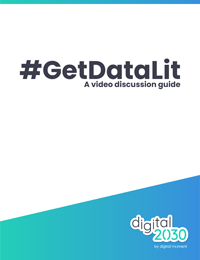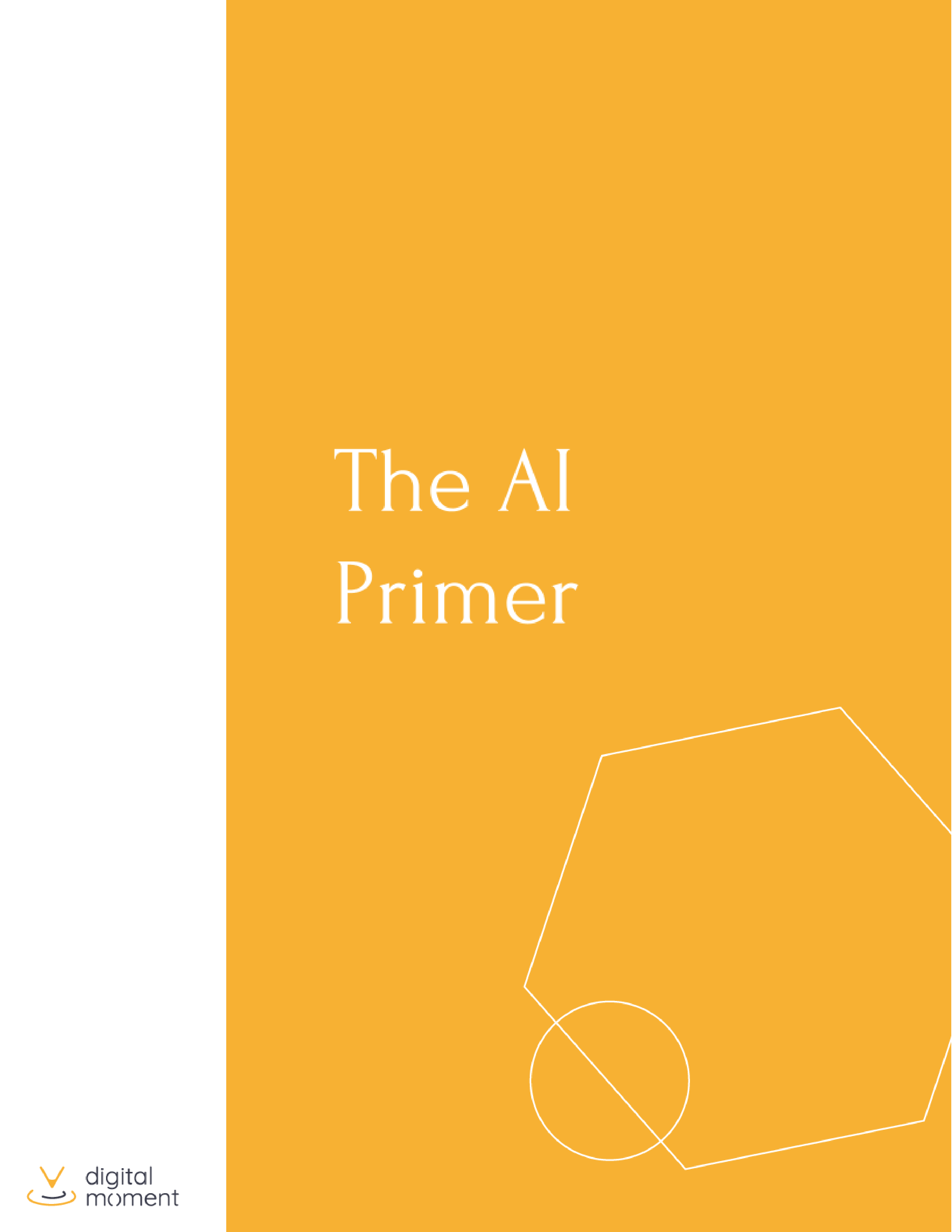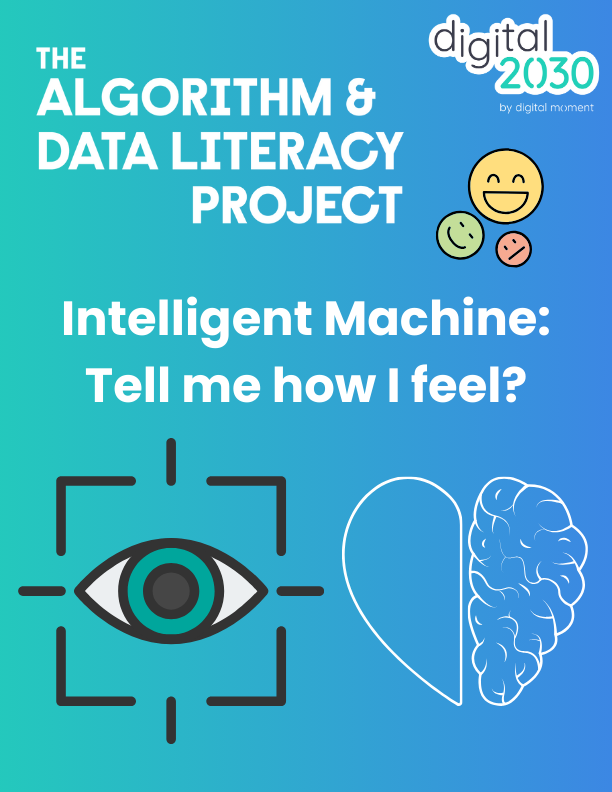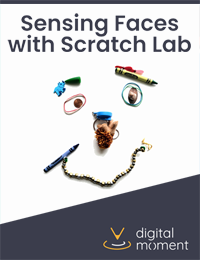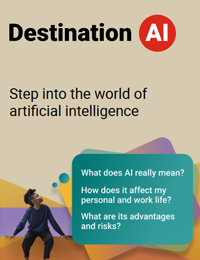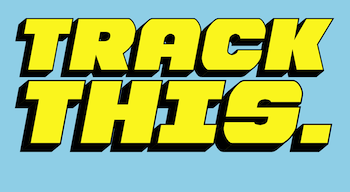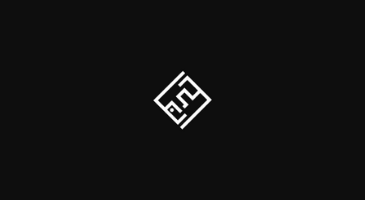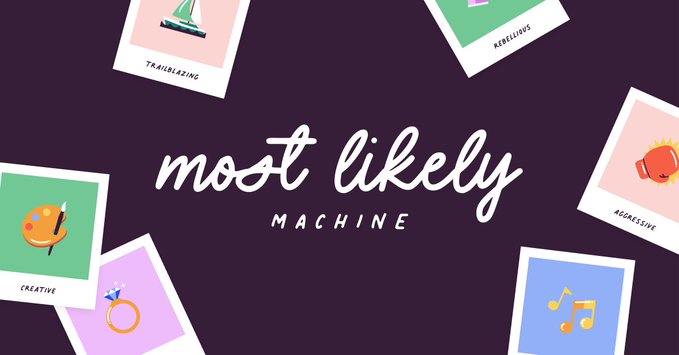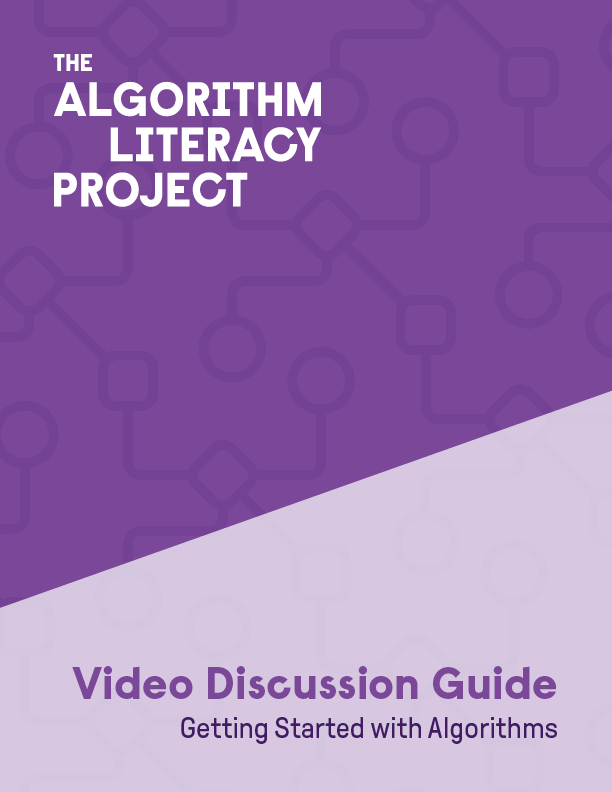What is Artificial Intelligence, Algorithm & Data Literacy?
Algorithms are step-by-step instructions given to a computer that describe how to perform a task. Data literacy is the ability to understand data: how it is collected, where it comes from, and how to use it in different contexts.
Think of a map. If you were to look up directions to get somewhere, your computer might answer you with an algorithm, the shortest path to get there. But the data it uses is provided from various sources. There’s the data you input in your computer, and there’s the data that others have provided to be able to compute several paths for you to choose from.
Being algorithm and data literate means being empowered to better understand how computers work and how algorithms use Artificial Intelligence (AI).
It means understanding that:
- AI is not magic
- Algorithms are not always right
- The data we use to train algorithms matters
- AI comes with ethical issues like bias
But it also means that working with data is more fun, more creative, and more exciting than it’s ever been.
#GetDataLit
Watch the video
Talk about it with your friends and teachers with the help of our discussion guide.
Data Literacy Discussion Guide
After you’ve watched the Data Literacy video you might want to think about these questions and discuss them with friends.
Read this AI Primer
AI Primer
The AI Primer is for anyone curious about artificial intelligence. It’s here to help you understand how it works, and how you can use it and even share your knowledge with others.
Read this lite paper on responsible AI
Trustworthy AI Litepaper
What is Trustworthy AI? Mozilla uses the term Trustworthy AI to talk about the kind of AI that are proven to be safe enough for humans to trust.
Organize a workshop with your class
It's easy, it's fun and we have everything we need to get started.
Intelligent Machine, Tell Me How I Feel
Advances in AI have enabled computers' cameras to identify objects and faces, even to classify emotions using facial expressions. The question is: is this technology reliable, even desirable? Dive into the world of machine learning and explore the ethical considerations around emotion-detecting technologies!
- Ideal age: 13-17 years
- Level: beginners, introduction
- Duration: 90 minutes
Data Literacy in the AI Era
This workshop gets students thinking about the place of data in their daily lives and shows them that they can understand it and learn to use it to navigate more easily in this world.
- Ideal age: 13-17 years
- Level: beginners, introduction
- Duration: 90 minutes
Sensing Faces With Scratch Lab - Workshop
Building on the sense of self-efficacy from simple making, we aspire to spark curiosity about how computers recognize patterns in the era of AI and how we can work with intelligent machines to amplify our own creations.
- Ideal age: 7-17 years
- Level: beginner
- Duration: 90 minutes
You deserve to know how algorithms work.
I’m everywhere you look, but you can’t see me. I make decisions for you, but you have more empathy than me. I think it’s time I introduced myself!
But why?
Algorithms are everywhere on the web, but they’re often invisible. Algorithms learn from your behaviour, can limit the options made available to you online, and influence your choices. Through this process, you can end up stuck in a ‘preference bubble’: the algorithm starts to show you only the things it thinks you’ll like, restricting your view of the world.
Our kids are the ones who need to hear about this the most. They are emerging as digital citizens and future decision-makers in a world where they’ll need to learn how to protect their data and use technology responsibly.

About the Project
Digital2030 (an experience by Digital Moment), the Canadian Commission for UNESCO (CCUNESCO) and UNESCO have partnered up to launch the Algorithm Literacy & Data Project to raise awareness and educate kids about the presence of algorithms and how they influence our digital experiences — in other words, get algorithm literate. The goal is to empower kids to exercise critical thinking in how they engage online, and to become proactive, creative users and makers rather than passive consumers.
#GetAlgoLit

See the world like an algorithm
Algorithms are step-by-step plans or instructions to perform a task or solve a problem — you can think of them like recipes that coders use to take information and produce things that help us achieve certain results.
The best way to improve your algorithm literacy is to become informed (check ✓), and then continue to educate yourself by reading, listening, reflecting, and discussing (learning is more fun with others!). It’s essential to consider other perspectives, like how algorithms might affect people differently all around the world.
Let’s get started! Here’s a simple step-by-step algorithm to start you on your own journey to #GetAlgoLit
Founding Partners
Founded in 2013 by Kate Arthur, Digital Moment (formerly Kids Code Jeunesse) is a Canadian-based charity and a global leader in mobilizing communities to build a better future through digital skills education. Digital Moment focuses on creating programs and experiences for youth and their communities on digital skills like coding, algorithm and data literacy, and artificial intelligence. Digital Moment includes three educational initiatives: Kids Code Jeunesse, Digital2030, and a social innovation lab.
Digital2030 invites youth through a variety of experiences to use digital skills to take action to build a more sustainable future. Aligned with the United Nations Sustainable Development Goals (SDGs), Digital2030 includes 3 experiences, which introduce learning about digital skills such as coding, digital literacy, and artificial intelligence, for youth around the world. These experiences are: The Challenge, Digital Leaders, and the Algorithm and Data Literacy Project.
Media and Information Literacy is a priority for CCUNESCO due to its close connection to freedom of expression, freedom of information, and fighting disinformation. The Canadian Commission for UNESCO serves as a bridge between Canadians and the vital work of UNESCO—the United Nations Educational, Scientific and Cultural Organization. By promoting UNESCO values, priorities and programs in Canada and by bringing the voices of Canadian experts to the international stage, the Commission contributes to a peaceful, equitable and sustainable future that leaves no one behind.
UNESCO is the United Nations Educational, Scientific and Cultural Organization. It seeks to build peace through international cooperation in Education, the Sciences and Culture. UNESCO's programmes contribute to the achievement of the Sustainable Development Goals defined in Agenda 2030, adopted by the UN General Assembly in 2015.
